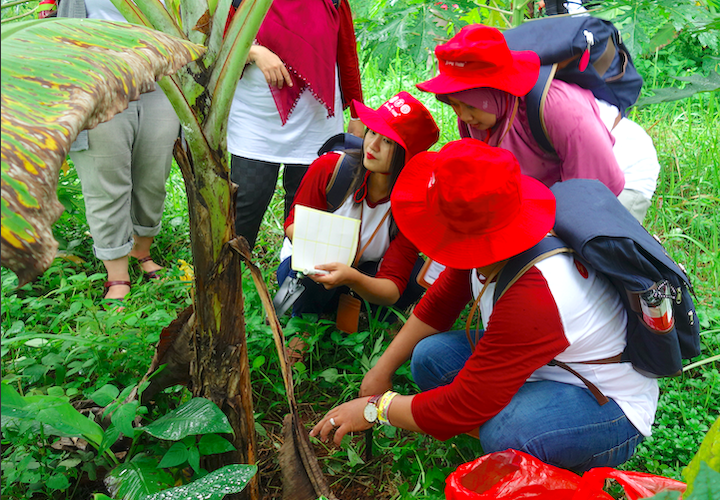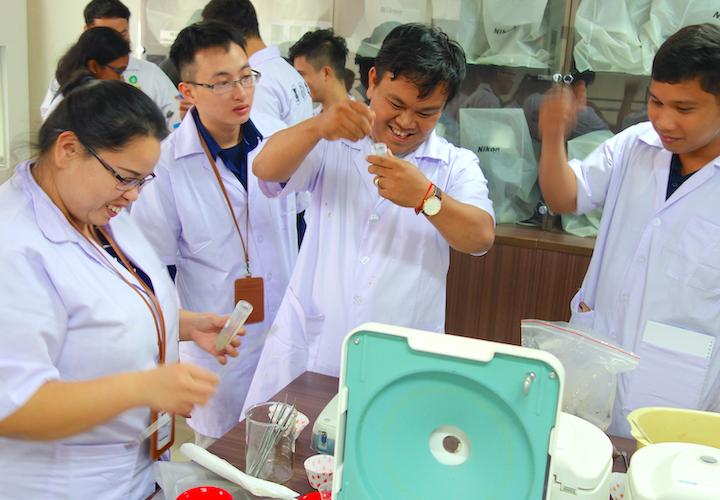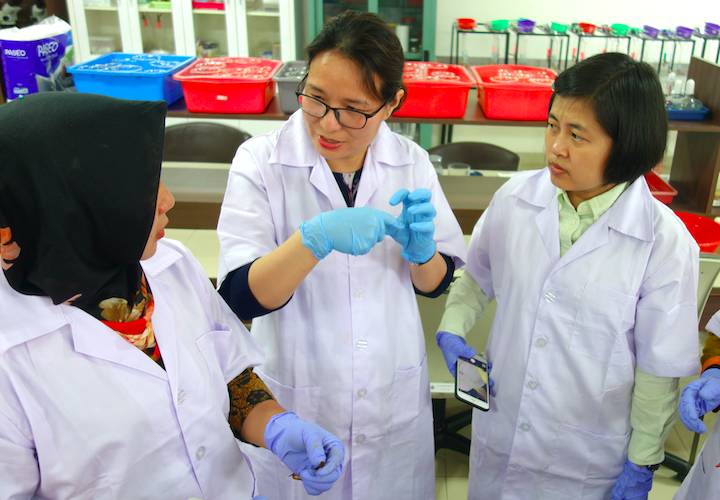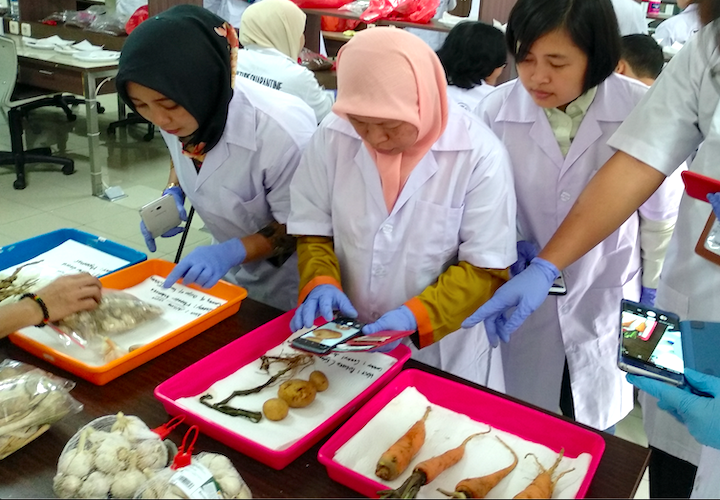
Training Workshop On Plant Parasitic Nematodes
Date: 23 Feb - 7 Mar 2020
Plant-parasitic nematodes (PPNs) cause serious problems in agricultural crops throughout the world from tropical to cold part of agricultural region. Especially, in tropical and subtropical region, such as South-East Asia where agriculture occupies an important position in the economy, PPNs proliferate so quickly at high growth rate that crops sometimes suffer considerably high yield loss.
This workshop aims to provide participants with the knowledge of basic and practical understanding of general nematology and PPNs, how to identify important PPN species and several management methods for them, such as chemical, physical, biological, cultural methods, and so on.
Lecture
To achieve these aims, the training course covers the following topics: collection method and theory, basic taxonomy and ecology of major species, genera and families of PPNs, collecting and preparation of specimens, identification based on morphological characters and DNA analysis, impacts of PPNs on major agricultural crops, and available options of management.
Main activitiesLecture
- To acquire knowledge on the taxonomy and classification of PPNs in relation to other nematode taxon; morphological characteristics and DNA barcoding of major genera and species
- To become aware of the importance of PPNs on agriculture in the world, especially in tropical and sub-tropical area
- To acquire knowledge how PPNs live and survive in soil
- To learn how to identify the symptoms of PPN-infected crops as one cause of poor growth due to continuous cropping
- To acquire knowledge on recent advances in detecting PPNs; focused on DNA extracting and analyzing method such as PCR, RFLP, real-time PCR and DNA sequencing method
- To learn how to protect crops from PPNs by chemical, physical, biological, cultural (including use of crop rotation, resistant varieties, nematode-suppressive or non-host plants) methods, and so on
- To become aware of the importance of international migration of PPNs as a serious problem on plant quarantine
- To learn the symptoms (shoot wilting, root gall, root lesion, etc.) caused by different genera of PPNs
- To learn the basic techniques in sampling soil, proper handling of samples
- To learn how to extract PPN from soil (Baermann funnel method and sieving method)
- To learn the morphological characters of major genera of PPNs for rough identification and how to count them under a microscope
- To learn how to extract DNA from an individual nematode, perform PCR and RFLP assay for species identification
Training methods
The training will be conducted by a combination of interactive lectures, laboratory practices and field visits. Field observation and sampling will be carried out in crop fields.Resource persons
- Prof. Hideaki Iwahori, Department of Bioresource Science, Faculty of Agriculture, Ryukoku University, 1-5 Yokotani, Seta Oe-cho, Otsu, Shiga 520-2194, Japan
E-mail: iwahori@agr.ryukoku.ac.jp - Dr. Marita S. Pinili, Senior Scientist, National Crop Protection Center, UPLB, Los Banos, Philippines
E-mail: maritapinili@gmail.com - Dr. Nurjanah & Dr. Ummu Salamah, ARIAC, Bekasi, Indonesia (for venue and logistic preparation)
Documents
Activities
© 2023 ASEANET. All rights reserved.
 HOME
HOME





